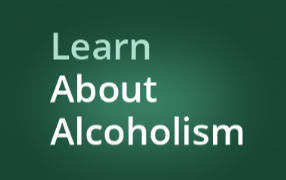Alcohol Statistics
and Alcohol Facts
There are many alcohol statistics that show the different effects alcohol has on the body. Alcohol is a depressant, which means it slows down both mental and physical processes in the brain when consumed. It can also cause breathing difficulties, nausea, vomiting, irregular heartbeats, liver damage or failure and seizures to name a few symptoms of alcohol poisoning.
These alcohol statistics might astound you. Here are some alcohol facts to consider:
- Annually, more than 100,000 deaths in the U.S. alone are caused by excessive alcohol consumption.
- Nearly half of all fatal car crashes are alcohol-related.
- The average person age 14 and older drinks 2.18 gallons of alcohol a year. (Obviously some drink less or none at all, and others drink much more).
- The more education a person has, the more likely they are to drink.
- The wealthier a person is, the more likely they are to drink.
- The country of Luxemburg has the highest per capita consumption of alcohol, followed by Hungary, Ireland, the Czech Republic, and Germany. The U.S. comes in 26th on the list.
- Every day an average of 11,318 teens try alcohol for the first time.
- Alcoholism costs the U.S. between 40 and 60 billion dollars per year.

These alcohol statistics might have surprised you. For instance, many people assume it is the poor and uneducated that are most likely to drink alcohol, but actually it is the opposite. You may also be surprised to learn how many car crashes are alcohol related, or how many teens are trying alcohol.
But now that we know these alcohol facts, what do we do with them?
Addressing Alcoholism
Alcohol statistics also tells us the following:
- Teens whose parents talk to them about the dangers of drinking alcohol are far less likely to drink than those whose parents do not discuss the issue with them.
- There are more than 10,000 chapters of SADD (Students Against Drunk Driving) in the U.S.
- There are multiple chapters of MADD (Mother Against Drunk Driving) in every state in the U.S. and throughout Canada.
- There are more than 100,000 Alcoholics Anonymous groups worldwide.
Knowing these alcohol facts, we can begin to address the problem. We can see how important it is for parents to talk to teens about alcohol. We can see how many resources are available to help treat and prevent alcohol abuse.We can see that there are support groups for those who have an alcohol problem.
With this knowledge, we can begin to fight the problem of alcoholism before it begins. Unfortunately, many people don’t know these alcohol facts until after they’ve lost someone close to them because of drinking or driving under the influence.
Alcohol statistics have to turn into more than just numbers. They have to turn into action. And in fact, the statistics above can be used as action steps for preventing drunk driving. Alcoholism is a growing problem, but it’s also a curable one. All it takes to help an alcoholic is support and resources. On the bright side of alcohol statistics, alcoholism can be prevented by education and protective measures.
If parents talk to their teens about drunk driving, those teens are less likely to drink. Teens can also join local SADD groups, where they will gain more information about the dangers of drunk driving and gain support from their peers in staying sober.
Parents can also get information from SADD about how to talk to their kids about alcohol.
Adults can work with MADD to further prevent drunk driving. MADD offers a number of ways people can get involved. And those who have a drinking problem can seek help at AA.
Many people are unaware of alcohol statistics, especially the extent of the problem. But if we put this information to use, it can make a real difference in many people’s lives. We may still have a long way to go when it comes to alcoholism, but for now, these alcohol facts can be used as steps toward reducing drunk driving and alcoholism.

Treating Alcoholism
Finally, statistics tell us a few things about treating alcoholism. From the alcohol facts, we know that:
- Effective treatment programs last at least 21 – 28 days and have an aftercare component.
- Effective treatment programs include individual therapy, group therapy, and medical care when appropriate.
- Effective treatment programs also include a family component.
Based on the alcohol facts we know, we can comprise effective treatment programs to help alcoholics. We can do much to treat the condition. However, we also know from alcohol statistics that alcoholics are likely to relapse at least once and that continuing care (aftercare) is essential to a successful recovery.
Given the stats about alcohol, we can see how important it is to support those who are recovering from alcoholism. We can help them stay sober by providing resources and encouraging them to seek help if they fall off the wagon. We can work with health care providers, family members of alcoholics, and counselors who specialize in treating alcoholism.
Support from family and friends is critical, as well. Treatment based on statistical knowledge is most likely to be effective.
Conclusion:
Alcohol abuse is a serious health problem. However, these alcohol facts can be used to understand and address the issue. With increased understanding comes increased success in the treatment and prevention of alcoholism. So it’s important to get the word out about what we know from alcohol statistics.

I am a Mental Health Counselor who is licensed in both New York (LMHC) and North Carolina (LCMHC). I have been working in the Mental Health field since 2015. I have worked in a residential setting, an outpatient program and an inpatient addictions program. I began working in Long Island, NY and then in Guelph, Ontario after moving to Canada. I have since settled in North Carolina. I have experience working with various stages of addiction, depression, anxiety, mood disorders, trauma, stages of life concerns and relationship concerns.
I tend to use a person-centered approach which simply means that I meet you where you are and work collaboratively to help you identify and work towards accomplishing goals. I will often pull from CBT when appropriate. I do encourage use of mindfulness and meditation and practice these skills in my own life. I believe in treating everyone with respect, sensitivity and compassion.
I recognize that reaching out for help is hard and commend you for taking the first step. We have professionals available who would be happy to help you move closer to reaching your goals related to your drinking concerns. You may reach these professionals by calling 877-322-2694.
